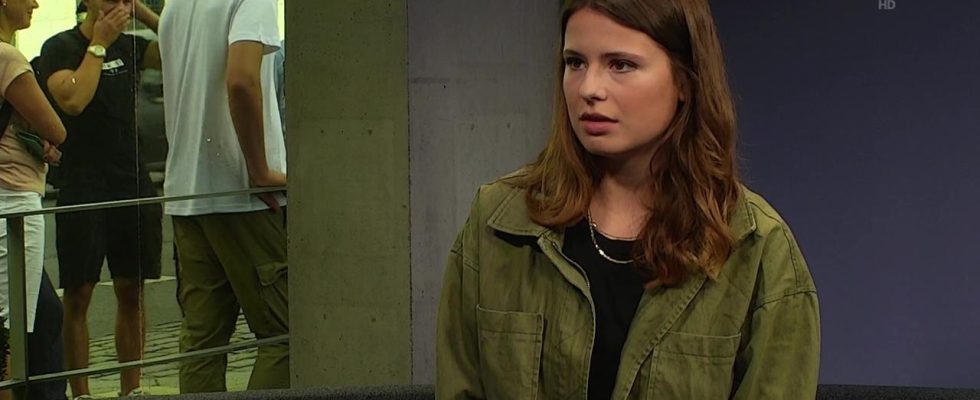interview
Five years ago, a global climate movement began with “Fridays for Future”. The spokeswoman for the German association can certainly see a rethinking of climate policy. But politicians too often stand in their own way, criticizes Luisa Neubauer.
The “Fridays for Future” movement has been campaigning for better climate protection for around five years. A lot has happened since the beginning, says Luisa Neubauer, spokeswoman for the association ARD interview. But not nearly enough. And in their eyes, that is mainly due to a policy that is treading water.
The 27-year-old does not spare criticism – neither of the grand coalition voted out in 2021 nor of its successor, the traffic light government. Neubauer sees very well that the traffic light parties want to do more in terms of climate protection, but there is a clear lack of implementation. When it comes to climate policy, Germany is at risk of slipping into a “stalemate” situation, she warns.
According to Neubauer, the politicians are by no means lacking in ideas. But their implementation? “A disaster,” she says.
An example: the promised climate money that has not yet been implemented. The state wants to collect income from taxes on CO2 emissions and pass it on to the population – for everyone equally. But “great speeches and great intentions” are often followed by the same thing at the traffic light – a “pun and puppet show,” as Neubauer calls it. “Olaf Scholz refuses to put his foot down, ministers are beating their heads and people are increasingly losing confidence in the government’s work.”
“The traffic light has to get its stuff clear”
Another example of the wrong course of the traffic light parties is the heating law for Neubauer. In the eyes of the traffic light, a decisive step towards the energy transition, from Neubauer’s point of view an “unfinished and unclean” law, the draft of which should have been “socially fairer and more well thought out”. So far, the heating law has only been a traffic light wish, because it was stopped by the Federal Constitutional Court before the summer break, and the decision was postponed until autumn.
Neubauer does not accept the criticism that “Fridays for Future” was too quiet in the fight to enforce the law as part of climate policy. “The traffic lights have to get their stuff clear,” demands the spokeswoman. And that cannot depend on the expectation that “the climate movement will jump around the corner” and face a law that the traffic light parties had formally agreed on, but could not then enforce.
“Don’t play crises off against each other”
Again and again, Neubauer emphasizes the goal of a “socially just climate policy”, also based on the concern that climate protection will have to be expensive and thus put a greater financial burden on those who already earn little – and that against the background of a currently weakening economy and high inflation . However, Neubauer warned against “playing off people’s crises against each other”. The 27-year-old admitted that “as of now” there is a risk of a climate policy “that is corporate-friendly, that further privileges the richest and further disadvantages the socially disadvantaged”. Neubauer warned:
If climate policy is not socially just, if it doesn’t think about the poorest, the disadvantaged and minorities, then it won’t be sustainable.
Instead, such a climate policy threatens to fuel further conflicts and resentment among people.
Don’t always just be “against”
The fight of “Fridays for Future” for more commitment to climate issues has changed since the movement emerged. Today, their members “no longer just have to be against it,” says Neubauer. But also sometimes for it, such as for the heat transition or for the recently decided simplifications for the use of private solar systems. “We no longer have to resolve fundamental conflicts,” says Neubauer.
It was very different in 2018. But it was “spectacular” to “experience how we create momentum that is growing so quickly,” says Neubauer. “So many really wanted to join in and get loud.” But especially in its early days, the movement also met with a lot of criticism. Neubauer recalls a “frantic search” by some people “for mistakes that are ours and not in climate policy”.
And politicians weren’t always open to “Fridays for Future” either. FDP leader Christian Lindner called climate protection a “thing for professionals”, not for a student movement. Ex-Economics Minister Peter Altmaier once described his appearance at a demonstration as a “shitty idea”. According to Neubauer, she did not expect the “malice” and “condescension” that “Fridays for Future” was met with in part by democratic institutions. That was frightening.
And yet the 27-year-old draws a positive conclusion after five years of “FFF”. More important than the laws, which may have been pushed by the pressure resulting from the protest, is the “attitude to life” that the movement achieved. “We don’t have to be powerless in the face of crises” – this awareness is a “huge asset that we have created,” said Neubauer. The awareness of being able to demand “tangible changes” – and that also from the younger generation, “which hasn’t been heard and ignored for so long”.

